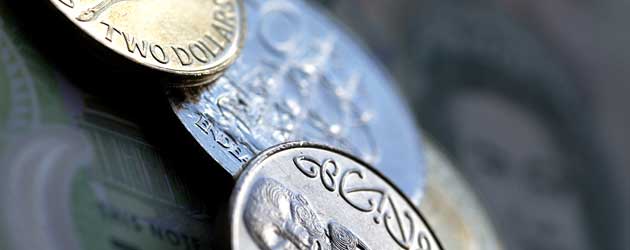
The Pound to New Zealand Dollar exchange rate (GBP/NZD) declined by around -1.65 cents during the Asian session as markets raised their valuations of the ‘Kiwi’ in light of a positive labour market report.
The New Zealand Dollar fell to 1.8476 in the immediate aftermath of the optimistic ecostat, which showed that Unemployment in New Zealand sunk to a 3-year low of 6.2% during the first quarter of 2013. In the final three months of 2012 the Unemployment Rate printed at 6.8% and a similar result was predicted to come in last night.
The surprisingly strong figure, which was largely influenced by a rebound in the earthquake-hit region of Canterbury, caught markets off-guard and led to a spate of New Zealand Dollar rallies across the board. The ‘Kiwi’ improved by 0.6 cents against the US Dollar (NZD/USD), 0.4 cents against the Euro (NZD/EUR), 0.5 cents against the Japanese Yen (NZD/JPY), 0.6 cents against the Canadian Dollar (NZD/CAD) and 0.4 cents against the Australian Dollar (NZD/AUD).
The report detailed an increase of 38,000 people finding work between January and March; the 1.7% increase in the labour market is the fastest expansion since records began in 1986. The jobless rate in Canterbury declined by a staggering -21% to 4.3%, as the region continued to rebuild following the devastating earthquake of 2010.
The New Zealand Dollar gained another 0.25 cents against Sterling in the early hours of this morning as Unemployment in the island nation’s Antipodean neighbor, Australia, also inched lower. Australian Unemployment fell unexpectedly from 5.6% to 5.5%, as the Australian economy added 50,100 new jobs in April. The robust Employment Change result printed almost five times higher than forecasts of 11,000, which boosted sentiment in the region. In response to the data GBP/AUD shrunk by -1.0 cent.
The ‘Kiwi’ also garnered support as the Chinese Consumer Price Index grew by more-than-expected from 2.1% to 2.4% in April. The less-influential Producer Price Index declined by -2.6%.
The optimistic dataset is obviously a good thing for the New Zealand economy, however it will pile pressure on Reserve Bank of New Zealand Governor Graeme Wheeler to act on his promise to bring down the “overvalued” New Zealand Dollar. Earlier this week the New Zealand Central Banker said the RBNZ “is prepared to intervene in the exchange rate…when circumstances are right”.
The RBNZ have come under fire from disgruntled business owners who feel that the consistently strong New Zealand Dollar is having a negative effect on the country’s exports. Indeed, during the past year alone the ‘Kiwi’ has appreciated by over 25 cents against the Pound. The New Zealand Dollar is seen as a solid investment because of its relatively high yield compared to the other major currencies, on top of that the nation is riding a wave of success stemming from strong Chinese demand for raw materials. The ongoing Eurozone debt crisis has also contributed to the ‘Kiwi’ Dollar’s gains, with jittery traders choosing to find new regions to invest in.
It will be interesting to see how the Reserve Bank react to the situation if NZD continues to appreciate against the Pound and US Dollar over the next few weeks. Central Bank intervention could help to stem the bullish ‘Kiwi’ Dollar rallies, but even by Governor Graeme Wheeler’s own admission: “intervention will not materially change the level of the exchange rate”.

Comments are closed.